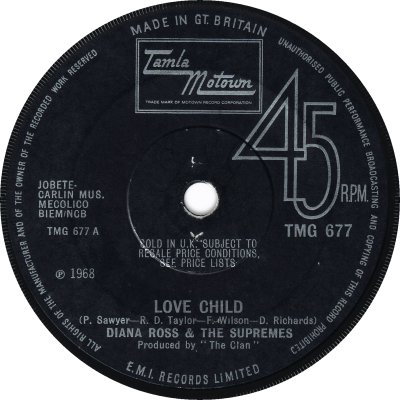
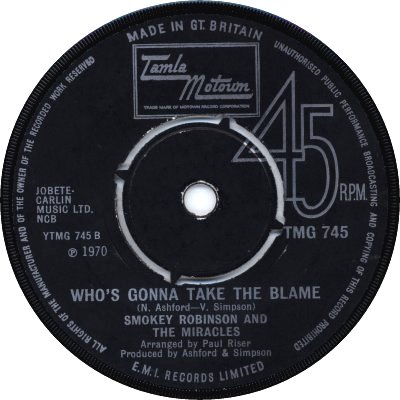
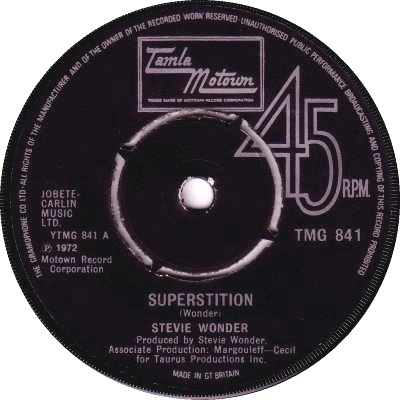
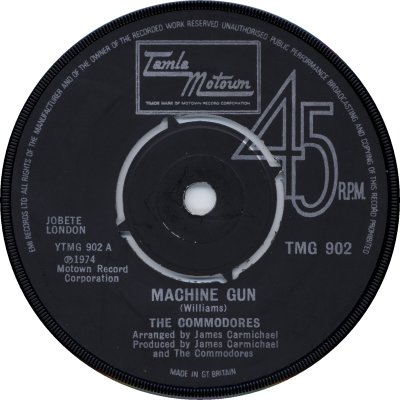
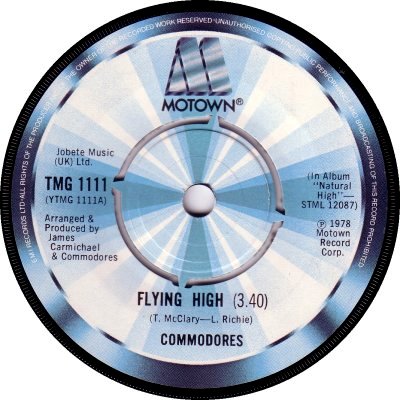
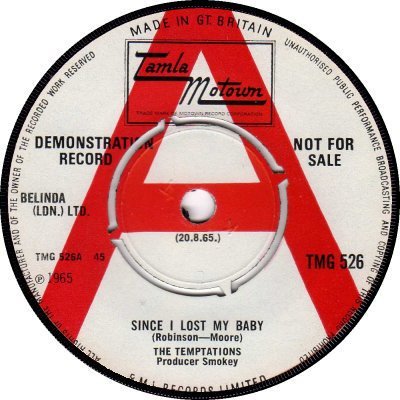
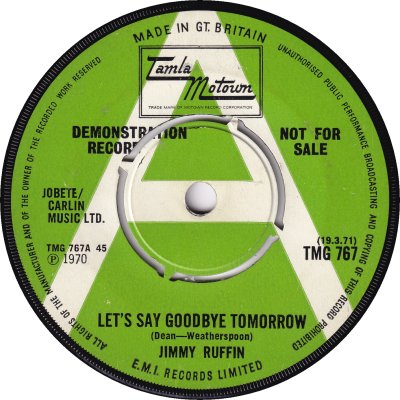
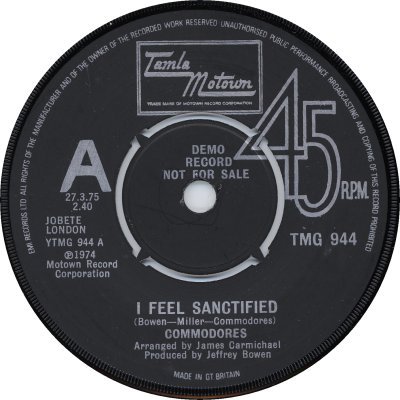
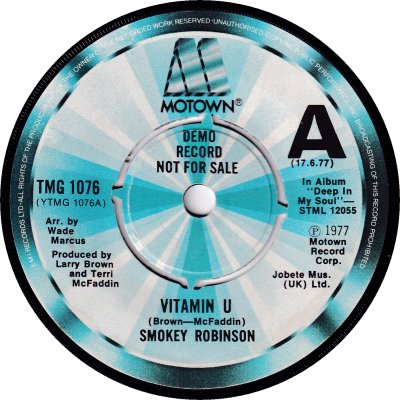
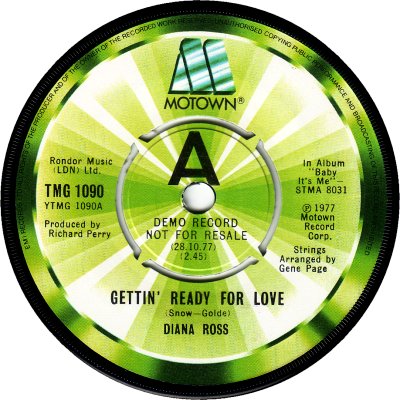
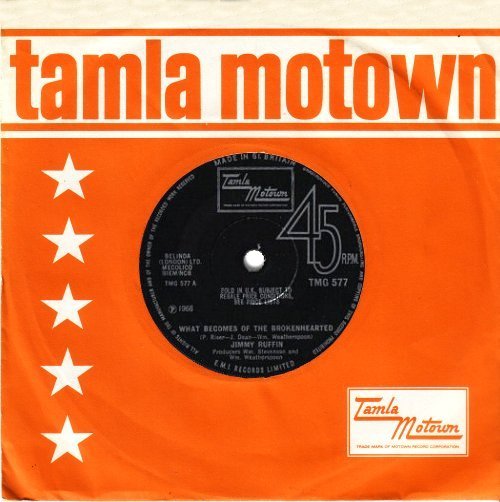
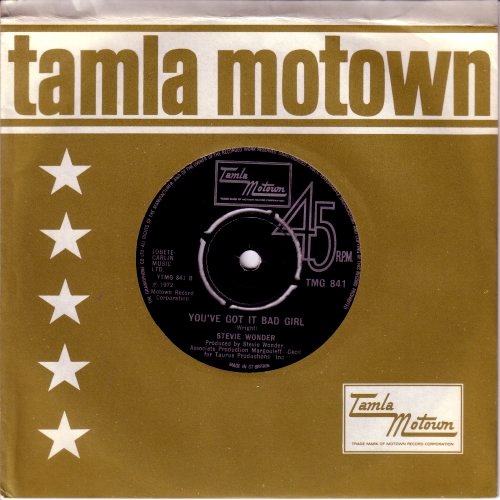
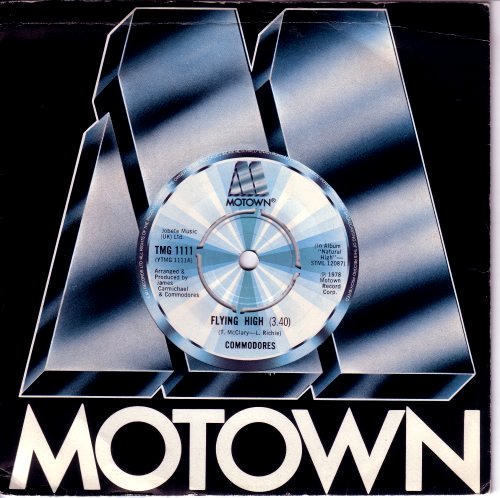
American; initially out of Detroit, Michigan. Songwriter / producer Berry Gordy Jr. started the Tamla label in 1959; a second label, 'Motown' soon joined it. The hits started flowing, as the labels put out records by people who would eventually be household names. 1960 saw the arrival of Marvin Gaye and of Mary Wells; in '61 came the Supremes and the Miracles. In 1963 the Vandellas, the Four Tops and Stevie Wonder were added to the roster, along with the songwriting and production team of Holland-Dozier-Holland; it was about this time that the 'Motown Sound' developed. The Temptations joined in 1966, and were followed by Gladys Knight; the Jackson Five signed up in 1969. Motown was hugely successful throughout the '60s; the departure of the Holland-Dozier-Holland trio in 1968 (they formed their own labels, 'Hot Wax' and 'Invictus', q.v. both) made little difference that success. In the early '70s there was a slight lull as far as the singles charts were concerned, though seminal albums like Marvin Gaye's 'What's Going On' (1973) and Stevie Wonder's 'Innervisions' (1973) showed that the company was still a major force in music; and indeed singles sales picked up again from 1976, with the Commodores registering as the label's best-selling act. Motown continued to sell large numbers of records in the '80's, but some of the magic had gone. In 1988 Berry Gordy Jr. sold the company to MCA and Boston Ventures.
In Britain selected material from Tamla and Motown appeared on the London, Fontana and Oriole labels before the company formed a more long-lasting relationship with EMI, which began in the autumn of 1963. At first EMI released its Tamla and Motown records on its all-purpose Stateside label, but in March 1965 they gained their own label identity, combined as Tamla Motown (1). Singles were numbered in a TMG-500 series. The black label and its logo soon became familiar, and the hits started flowing. The first Tamla Motown single, 'Stop! In The Name Of Love' b/w 'I'm In Love Again' by The Supremes (TMG-501; 3/65) set an example by reaching the Top 10, and the second, Martha & The Vandellas' 'Nowhere To Run' b/w 'Motoring' (TMG-502; 3/65) made it into the Top 30, but the company had to wait until October 1966 for its first No.1 on its own label. 'Reach Out I'll Be There' b/w 'Until You Love Someone' by The Four Tops (TMG-579; 10/66) was the record that did the trick; 'Baby Love' b/w 'Ask Any Girl' by The Supremes had hit that spot previously, in November 1964, but on the Stateside label (SS-350). Other Tamla Motown artists to reach No.1 in the '60s or '70s were Marvin Gaye with 'I Heard It Through The Grapevine' b/w 'Need Somebody' (TMG-686; 2/69); Smokey Robinson & The Miracles, with 'Tears Of A Clown' b/w 'Who's Gonna Take The Blame' (TMG-745; 7/70); and Diana Ross, with 'I'm Still Waiting' b/w 'Reach Out I'll Be There' (TMG-781; 7/71). All three of those artists hit the Charts repeatedly, as indeed did other members of the Tamla Motown stable such as The Temptations and Jimmy Ruffin.
Motown's interests included other forms of music than the kind that was associated with Tamla Motown here, and it introduced several other labels in the 1970s to cater for them. Rare Earth, which was more Rock orientated, made its debut here in 1971, two years later than in the States; MoWest, for product from Motown's Los Angeles office, followed in 1972. Prodigal, formed by Barney Ales in 1974, was adopted into the Motown family in 1976 when Ales rejoined Motown as vice-president, and it was given its own label identity here - it already had its own identity in its homeland. Hitsville, Motown's Country music label, made a fleeting appearance on these shores in 1977, while Mike Curb's MC label, which was affiliated to Motown, surfaced equally briefly here in 1978. The Motown affiliate which issued the fewest number of records in this country was Gaiee, which in June 1975 was brave enough to feature an openly gay artist singing an openly gay song: Valentino, with 'I Was Born This Way' b/w 'Liberation' (GAE-101; 6/75). It was the label's only release. All these labels have their own pages on this site.
Despite enjoying so much Chart success Tamla Motown didn't feature much in the UK's Trade press in the '70s. 'Music Week' of the 3rd of March revealed that Motown had formed a new UK production company, which would be responsible for acquiring talent. At that point the new company hadn't a name, but the acts that it signed would be the first British ones to sign directly to Motown. In the event these UK productions came out on Rare Earth, which ended up as more or less Motown's outlet for them, or on MoWest. 'MW' of the 19th of November 1974 said that Motown was planning to re-release more old material, possibly in December but probably in the new year; however, no concentrated reissuing took place till September 1976 and the arrival of the 'Motown Single Collection' series. There was a development in 1975: 'MW' of the 14th of June broke the news that with Motown's ten-year licensing agreement with EMI ending it was to be replaced by a pressing / distribution /sales one, and Motown was to go independent; the company was planning to introduce its own sales force in September. 'MW' of the 23rd of August confirmed that Motown was on course to change from a licensed label to an independent in September; but for some reason the change never took place. 'MW' of the 4th of October said that the plans had been dropped, and that Motown had renewed its licensing agreement with EMI for a further three years.
A big change took place the following year: 'MW' of the 17th of July 1976 broke the news that the familiar Tamla Motown logo was to be dropped, with a 'solid M' one taking its place. The company hoped that Stevie Wonder's 'Songs In The Key Of Life' album would be the first record to feature the new label design; if that wasn't possible the design would be held over for the next big release. Jermaine Jackson's ' Let's Be Young Tonight' b/w 'Bass Odyssey' (TMG-1040; 10/76) was the last single featuring new material to be released on Tamla Motown, though the label continued to feature on reissues and other old material. Motown re-signed its licensing agreement with EMI in 1978 ('MW', 26th August), but in January 1980 the closure of EMI's dedicated Licenced Repertoire Division, which had been responsible for looking after Motown among other labels, led to considerable disruption. Responsibility for Motown's affairs was put into the hands of Liberty-United Artists ('MW', 26th January 1980), but in the summer of 1981 the company ended its long association with EMI and moved to RCA.
The Tamla Motown label design survived from 1964 to 1976 with only minor alterations. The 'Sold in the U.K.' text under the spindle hole (1) lasted until July 1969; TMG-703 was the last single to feature it. The 'Made In Gt. Britain' at the top (2) shrank and moved to the bottom, replacing the 'EMI Records Limited' (3) in December 1972, though it continued to appear on demos for another twelve months; while in October 1973, with TMG-877, the reference to 'The Gramophone Co.' at 8 o'clock was replaced by one to 'EMI Records' (4). The classic design was replaced by the blue 'wheel' one in October 1976 (5). With regard to Demo copies, the markings followed the pattern set by the other main EMI labels: initially they were white with a large red A (6); the colouring changed to green and white in October 1966 (7); while from September 1973 issue labels overprinted with a small 'A' and the appropriate text were used (8). 'Wheel' label promos were similarly overprinted at first (9), but from August 1977 until the summer of 1979 they were given special green labels (10). After that the overprinted issue labels returned. The orange company sleeve (11) was the first; it seems to have lasted until around 1967, when it was replaced by the brown one (12). There are several full Tamla Motown / Motown discographies on the Net; my own partial one only covers the 1970s. Thanks to Bob Mayhead for the scan of the white demo.




Copyright 2006 Robert Lyons.

